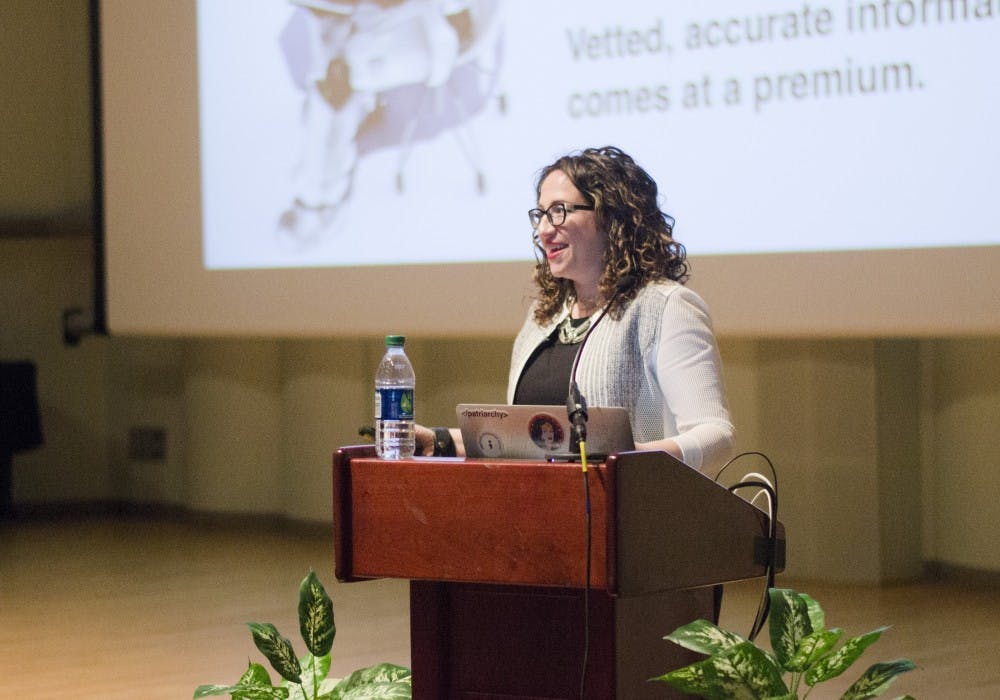She talked about many new emerging technologies that have been created this year, such as advancements in artificial intelligence, facial recognition and voice recognition.
Technology has become more personalized to individuals with the creation of smart phones and artificial intelligence. However, that has also made it more addictive. Once you’ve gotten hooked, you rely on your technology all day long, Webb said.
“There are virtual personal assistants that live inside of our phones that are voice activated. That provides us with just the right amount of information at the moment of time when we need it,” Webb said in an interview before the lecture.
During her lecture, Webb discussed how much more personalized information will become to the public. A news story will become much more personalized, including references to information pertaining to the individual. The old ways of storytelling will be replaced with newer types.
“There won’t be a subscription to the New York Times as we know it today,” she said.
Webb has founded three different companies, including Future Today Institute, which researches emerging technologies before they are well known.
She equates her work to mapping out what the future could look like.
“We’ve done a lot of government work on the future of things like war. We’ve done a ton of work on the future of media and the future of news," she said. "We’ve recently done a project around the project of cars, since millennials are less enthusiastic about getting their driver’s license in a lot of parts of the country.”
She encouraged students to take the future into their own hands, saying she believes that journalists should be able to create a new type of storytelling. Snapchat, for example, has an interesting way of telling stories in fifteen seconds.
During her lecture, Webb also told students to do more than just internships.
She believes the way to prepare for the future is by creating "long-term, meaningful research and development partnerships between industry and great universities like Ball State."
Webb said she believes more content will be produced by machines rather than journalists in the future. Artificial Intelligence will be able to do similar things to humans, such as detect personality.
Currently, there are programs like Crystal that can process information from a person's public data, such as their LinkedIn and Twitter accounts, to inform someone on how to create an email to that person’s liking for the best response.
Webb believes the world will soon coexist with machines that have the ability to think.
“The future isn’t something that happens to us passively. It’s something we all create together, in the present,” she said.





